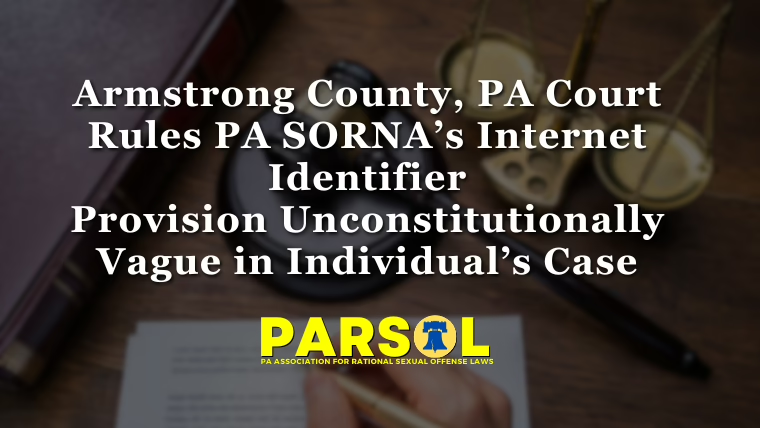By Jerry B . . . In 2006, Defendant Zeno committed two delinquent acts that occurred when he was age 14 and 16. Because of the nature of the two acts, his case was transferred from juvenile court to adult criminal court where he pled guilty to rape of a child, sexual assault, criminal attempt (rape), criminal attempt (incest), and indecent assault. The trial court sentenced him to an aggregate sentence of four to eight years’ incarceration followed by five years’ probation, and informed him that he would be required to register as a sex offender. In August of 2017, Zeno was found guilty of violating the terms of his probation and parole and was sentenced to 2 to 10 years of incarceration.
Zeno challenged the registration based on the Pennsylvania Supreme Court’s Ruling in In Re J.B.,107 A.3d 1 (Pa. 2014) that “SORNA’s registration requirements improperly brand all juvenile offender’s reputations with an indelible mark of a dangerous recidivist even though the irrebuttable presumption linking adjudication of specified offenses with a high likelihood of recidivating is not ‘universally true.’ . . . The application of SORNA’s current lifetime registration requirements upon adjudication of specified offenses violates juvenile offenders’ due process rights by utilizing an irrebuttable presumption.”
The Commonwealth, however, argued that since Zeno was tried in criminal court rather than Juvenile Court, he was eligible for registration as a sex offender.
A panel of Superior Court justices disagreed with the Commonwealth and ruled that because Zeno was a juvenile when he committed the crimes, he does not have to register as a sex offender. In Re J.B. applies to him. See the decision here.




